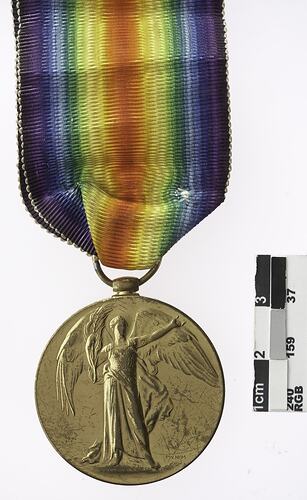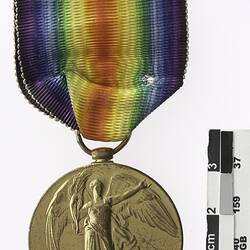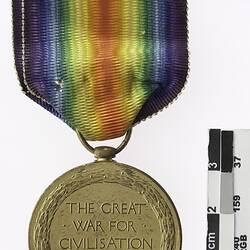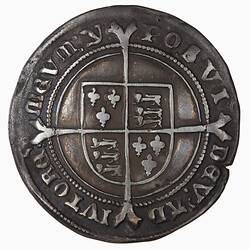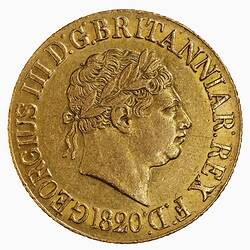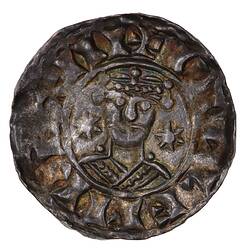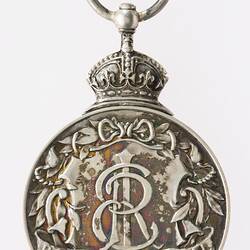Summary
Victory Medal 1914-1919 awarded to Pte. John Hurst, service number 2702, 6th Battalion, A.I.F.
Private Hurst was a labourer in Broken Hill when he joined on 19 June 1915 in Ballarat. He was 19 years and 9 months. He was invalided on 25 April 1916 in France due to heart disease and was judged 10% incapacitated. He was discharged on 21 January 1917 and later died on 23 February 1919. The cause was accepted as being due to war service and medals were sent to his mother, Catherine Hurst, residing at Sharwood St, Ballarat East.
The Victory Medal was authorised in 1919 and was awarded to army, navy and air force personnel who served in a theatre of war between midnight 4th-5th August 1914 and midnight 11th-12th November 1918. The Allies resolved that, if they wished to issue a Victory Medal, it would share a common feature of a depiction of Victory on the obverse and a ribbon of red, yellow, green, blue and violet merged into a rainbow pattern. This medal, that of Great Britain, was awarded to personnel from countries in the British Empire (some 5,725,000 were issued). The other Allied countries that issued Victory medals were: Belgium, Brazil, Cuba, Czechoslovakia, France, Greece, Italy, Japan, Portugal, Romania, Thailand, Union of South Africa and the United States of America.
Obverse Description
Figure of Victory facing three-quarters right with wings spread; in her right hand she holds a palm branch, her left hand is extended and open. The artist's initials, W.McM. (W. McMillan) are above the ground line on the right.
Reverse Description
The words, 'THE GREAT . WAR FOR . CIVILISATION 1914-1919' within a circular wreath of laurel.
Edge Description
Text; '2702 PTE. F.J. HURST 6 BN. A.I.F.'.
More Information
-
Collecting Areas
-
Awarded To
Private Fredrick J. Hurst, Australia, 1919
2702 Pte F.J. Hurst, 6th Battalion, A.I.F. -
Issued By
-
Mint
-
Artist
-
Inscriptions
Obverse; 'W.McM.' (W. McMillan- artist). Reverse; 'THE GREAT . WAR FOR . CIVILISATION 1914 - 1919'. Edge; '2702 PTE. F.J. HURST 6 BN. A.I.F.'.
-
Material
Bronze
-
Axis
12
-
Classification
-
Category
-
Discipline
-
Type of item
-
Overall Dimensions
50 mm (Height), 36 mm (Outside Diameter)
Height to top of loop.
-
Shape
Round with loop and ribbon
-
References
References: [Link 1] War I/World War I.html
[Book] Joslin, E C., et al. 1988. British Battles and Medals., 230 - 1 Pages
-
Keywords
